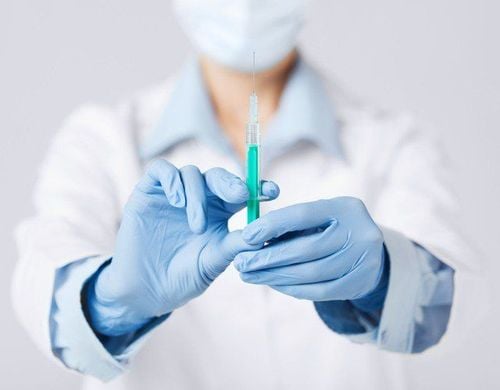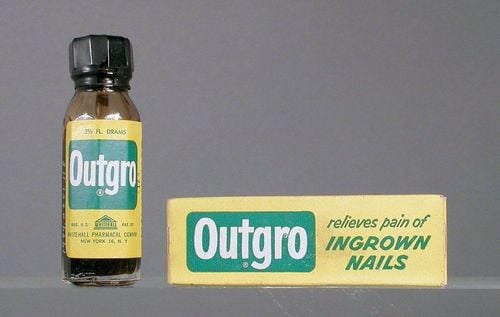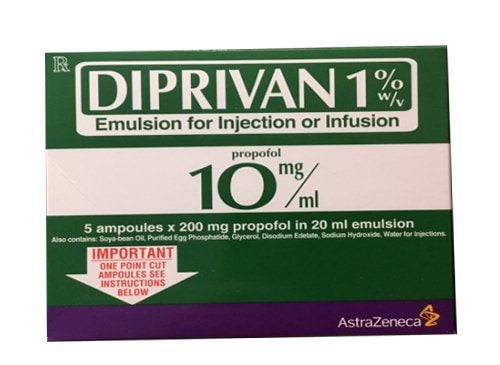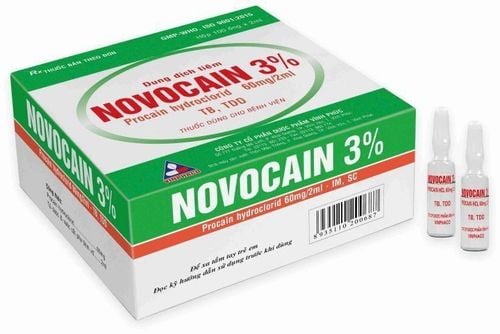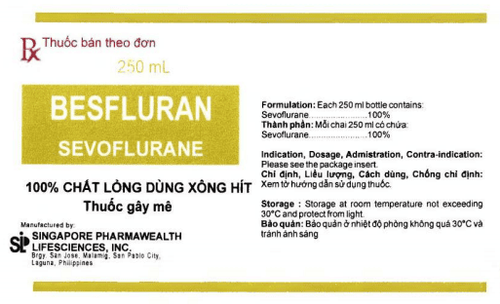This is an automatically translated article.
The article is professionally consulted by Master, Doctor Ta Quang Hung - Department of General Surgery - Vinmec International General Hospital Da Nang.Anesthesia helps children lose consciousness and pain sensation during screening techniques or surgery. Accordingly, the side effects of anesthetic drugs with children are a problem that worries many parents.
1. Using anesthetics for children
Anesthesia for children to ensure that the child is unconscious, unresponsive, and pain-relieving during screening or surgery. Which anesthetic technique to perform will depend on the child's health condition, type of procedure, surgery, and tests that the child will have.To prepare for anesthesia, the child will have a general health check immediately before or on the day the child needs surgery or treatment. During the exam, the doctor will review your child's medical history and current health. Parents need to provide information to the doctor if the child has problems such as:
The child is allergic to certain drugs or foods. In particular, the child has had an allergic reaction to anesthesia during a previous surgery or test. Children with respiratory problems such as asthma, bronchitis, wheezing,... Children with congenital heart diseases Children or family with a history of blood clotting disorders, easy bleeding. Children with loose teeth, sometimes loose teeth need to be removed to ensure safety for children during anesthesia. Before, after and during anesthesia, the child will be closely monitored for heart rate, breathing rate, blood pressure, body temperature and blood oxygen level to adjust the amount of anesthetic accordingly. Your child will still sleep for a few hours after the surgery is over due to the effects of the medication.

2. Side effects of anesthetic drugs for children
Anesthesia used for children is monitored by doctors and modern equipment, so it is very safe. However, as with other drugs, when using children can experience some side effects of anesthesia. The extent of the effects of the medicine will depend on the type of anesthetic used, the weight, age, medical history, the rate of growth of the child, and the type of surgery performed. Some common side effects of anesthetics in children are:Nausea and vomiting Dizziness, fatigue Cough, sore throat Post-anesthesia excitability syndrome: crying, restlessness, inconsolable kicking, confusion up to 30 minutes unaffected by parental presence upon awakening. This syndrome is common when anesthesia with anesthetic drugs with low solubility such as Sevoflurane, Desflurane. During the stimulation phase, there is a risk of harming the child (making the child lose the transmission line,...). However, this is a temporary side effect of anesthesia with children, not long-term health effects. Some other serious side effects that affect children's health are allergic reactions to anesthetics, brain injury, metabolic acidosis, arrhythmia, heart failure, kidney failure,... These serious effects are very rare, parents need not worry too much. The child will be closely monitored during the surgery, and the doctor will respond quickly when the child has unusual symptoms.
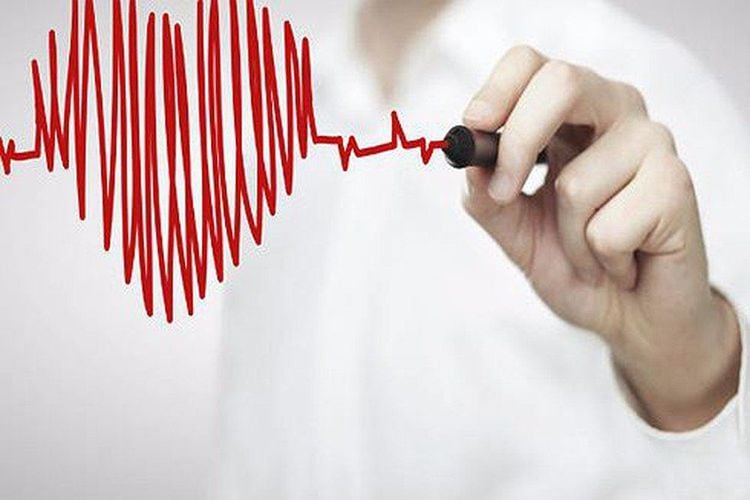
3. What can be done to reduce the side effects of anesthesia with children?
Parents should discuss with their doctor the benefits and risks of surgery. Your doctor will provide specific information about the side effects of anesthetics with children. The doctor will also advise parents about the child's health status, if the surgery is not urgent (such as cleft palate surgery, bow legs, ..), the child can wait until the age of three years before surgery. art. As the child gets older, the side effects of the anesthetic will lessen.It is important for parents to fully inform the doctor about the child's medical history, especially any illnesses the child has had near the expected time of surgery or testing. If the child has a cold or other illness, anesthesia may have to be postponed because of the increased risk to the child.
In addition to the above factors, to ensure safety as well as minimize the possible side effects of anesthesia for children, parents need to choose a medical facility or hospital that performs anesthesia. resuscitators with good expertise, with modern facilities can promptly handle side effects that occur during and after anesthesia.

Vinmec International General Hospital is one of the hospitals that strictly applies safe surgical anesthesia practice standards according to international guidelines. Vinmec has a team of experienced anesthesiologists and nurses, modern equipment such as: nerve detectors, ultrasound machines, Karl Storz's difficult airway control system, comprehensive anesthesia monitoring system GE's AoA (Adequate of Anesthesia) including monitoring of anesthesia, pain and muscle relaxation will provide high quality and safety, helping patients to have adequate anesthesia, not wake up, and do not have residual muscle relaxants after surgery.
Vinmec Health System is also proud to be the first hospital in Vietnam to sign with the World Anesthesiology Association (WFSA) towards the goal of becoming the safest hospital for surgical anesthesia in Southeast Asia. Therefore, parents can feel secure and confident when giving anesthesia to their children at Vinmec.
Master. Doctor Ta Quang Hung has more than 10 years of experience in teaching and practicing in the field of Anesthesia and Resuscitation. Currently, working as an Anesthesiologist, General Surgery Department - Vinmec Danang International Hospital
Please dial HOTLINE for more information or register for an appointment HERE. Download MyVinmec app to make appointments faster and to manage your bookings easily.





